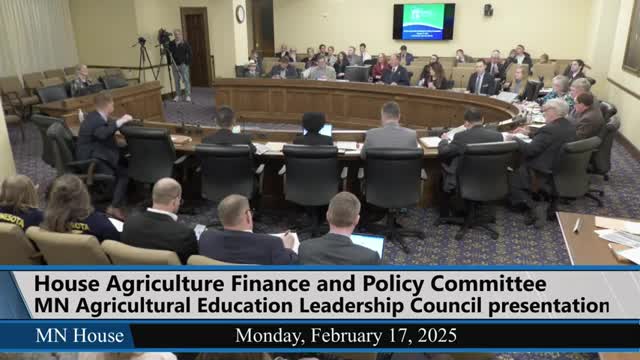Article not found
This article is no longer available. But don't worry—we've gathered other articles that discuss the same topic.
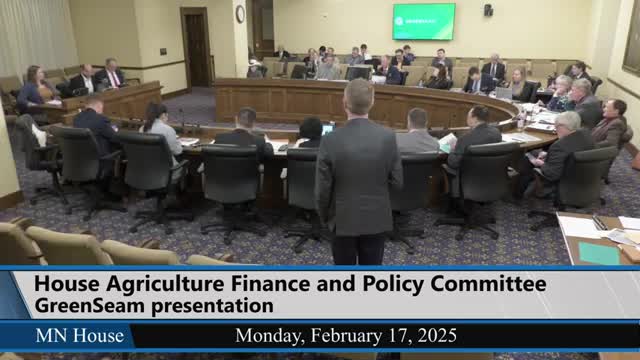
GreenSeam representatives describe regional ag‑education and talent work; offer school and industry partnerships
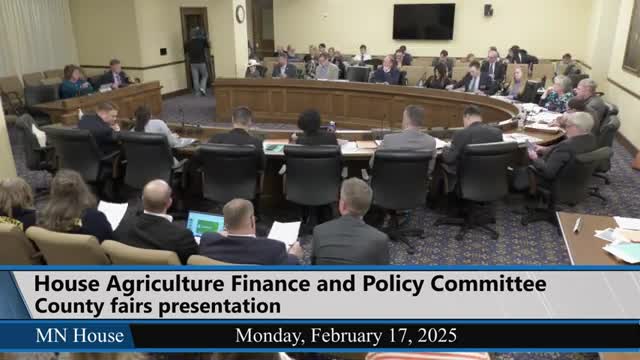
County fair leaders describe use of AGRI grants and premium funds to preserve ag education and lower participation costs
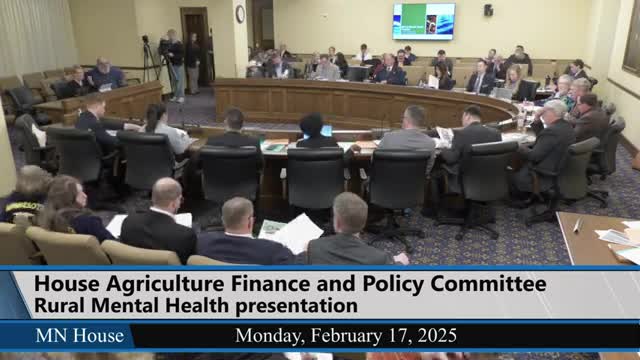
Rural mental health specialists warn of rising farm stress; program capacity at limit
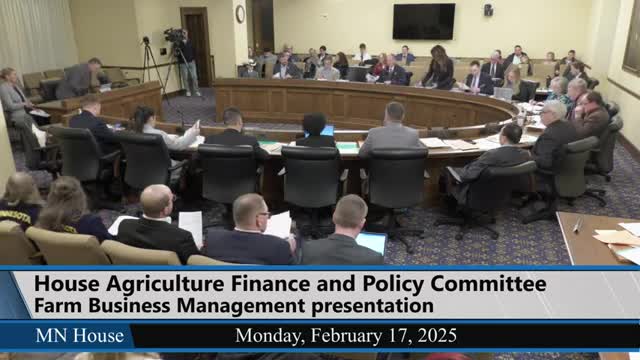
Lawmakers hear pitch to expand Farm Business Management funding; HF 653 laid over
